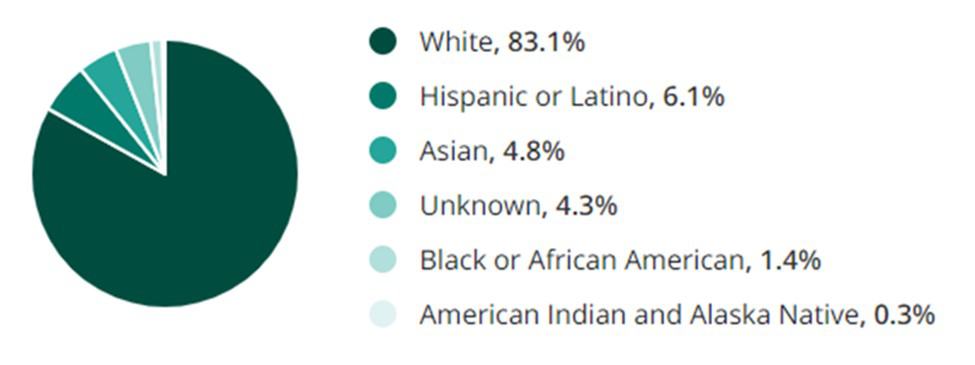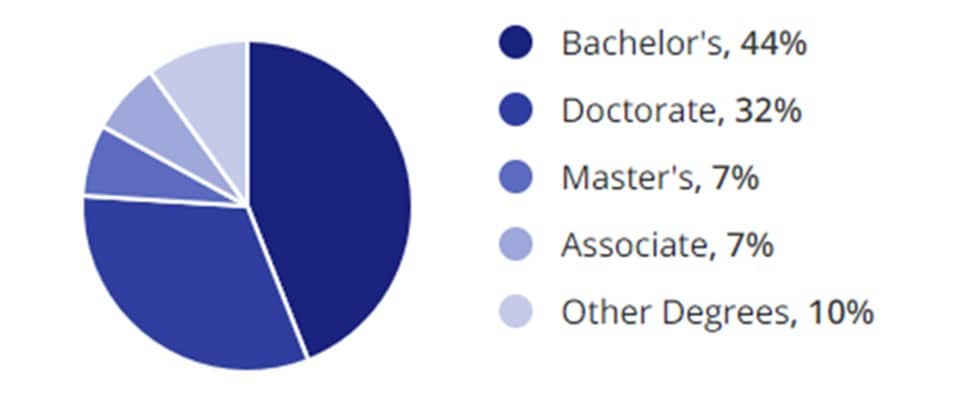Welcome to your ultimate guide to a career in veterinary services. Passionate about animals? This guide can help you enter the rewarding field of veterinary medicine. Veterinary professionals are vital heroes in our communities, ensuring the well-being of animals that directly affect our own.
The field of veterinary services jobs is broad, offering roles that cater to various interests and skills. Whether you’re drawn to hands-on medical care, prefer working behind the scenes in research, or wish to pioneer advances in animal health technology. The scope for career development and impact is vast, with opportunities ranging from veterinary assistant jobs to specialized veterinarian roles.
This guide covers the basics of starting or advancing in a veterinary career, including education, expertise, demographics, salary trends, and future outlook. We also highlight how diversity and inclusion in veterinary services enrich animal care. Join us in exploring the exciting world of veterinary services, where your career can make a lasting difference in the lives of animals.
Educational Requirements
Starting a career in veterinary services begins with the proper education. Most veterinarians achieve their profession with a Doctor of Veterinary Medicine (DVM) degree from an accepted veterinary college. Beyond the degree, a state license is a must. This calls for passing the North American Veterinary Licensing Examination (NAVLE). However, not all roles in veterinary services require a DVM degree. For instance, veterinary assistant or veterinary receptionist jobs might only require a bachelor’s degree in veterinary science or related fields, alongside relevant certifications. There’s also a growing need for professionals in remote veterinary jobs, expanding opportunities beyond traditional settings. Seeking further specialization post-DVM can also significantly benefit your career trajectory.
Areas of Expertise
The field of veterinary services is broad, offering a range of areas for specialization. Whether you’re passionate about caring for household pets or interested in the medical needs of farm animals, there’s a niche for every interest. Here are some of the critical areas of expertise:
- Small Animal Practice: focusing on pets like dogs, cats, and rabbits.
- Equine Medicine: specialized care for horses, addressing their unique health needs.
- Food Animal Practice: working with farm animals intended for food production.
- Research: contributing to medical advancements for all animal types.
- Veterinary surgery: performing surgeries with specialized training.
- Wildlife Medicine: caring for wild animals in the wild or reserves.
- Emergency and Critical Care: providing urgent care to animals in critical conditions.
These areas vary in the type of animals cared for and in the environments, vets work in, from clinics and hospitals to research labs and fieldwork. Specializing in one of these areas can lead to fulfilling career paths, such as remote veterinary technician jobs, where technical skills are in high demand. Whether your interest lies in direct animal care or behind-the-scenes research, veterinary services offer diverse opportunities to make a significant impact.
Demographics in the United States
Ethnicity/Race:
The veterinary field in the U.S. is becoming more diverse. Understanding the ethnic and racial makeup is crucial for diversity and an inclusive environment. The current distribution is roughly as follows:
- White: 83.1%
- Hispanic or Latino: 6.1%
- Asian: 4.8%
- Unknown: 4.3%
- Black or African American: 1.4%
- Native American and Alaska Native: 0.3%
This diversity in ethnicity brings different perspectives and approaches to animal care, which can enhance the quality of service provided.

Gender:
The gender distribution within veterinary services leans towards females, with the statistics showing:
- Female: 62.9%
- Male: 37.1%
The increasing opportunities in all areas of veterinary medicine and a traditionally nurturing role have contributed to the field’s appeal to women.

Age:
Professionals in veterinary services span multiple age groups, illustrating the broad appeal of this career path. The estimated average age is about 34 years. This breaks down as follows:
- Young professionals bring energy and fresh ideas, while swiftly adapting to new technologies and practices.
- Experienced veterinarians offer a depth of knowledge in specialized treatments and surgeries.
Such diversity of ages helps create a dynamic workplace environment, promoting learning and mentorship between generations.

Salary Trends
The salary landscape in veterinary services reflects the diversity of roles and expertise. From those just starting their careers to specialized veterinarians, earnings can vary significantly based on specialization, location, and experience level. Here’s a general overview:
- Entry-level positions, including veterinary assistant jobs, may start around $30,000.
- Mid-level professionals, such as veterinary technicians or those in remote veterinary technician jobs, can earn between $35,000 and $50,000.
- Experienced veterinarians and veterinarian specialists can see salaries over $90,000, with top earners making $120,000+.
As the field continues to evolve, staying informed about salary trends is crucial for job seekers and employers to ensure fair and competitive compensation.
Hiring Trends
The demand for veterinary professionals is steadily increasing, reflecting the growing need for animal care and health services. As pet ownership increases and attention towards animal welfare intensifies, the veterinary services sector is witnessing some notable hiring trends:
- There’s a surge in demand for veterinary specialists, particularly those with expertise in surgery, emergency care, and rare animals.
- Telemedicine is gaining traction, opening up remote veterinary jobs and consultation opportunities.
- Wellness and preventive care are becoming focal points, requiring more professionals in routine care roles.
- Veterinary practices increasingly seek staff with strong interpersonal skills who can foster positive client relationships.
Moreover, veterinary practices actively seek diversity in their teams, understanding that diverse perspectives and experiences enhance patient care. As a result, efforts to recruit from a broad talent pool, including underrepresented groups, are intensifying. Keeping current with these trends is crucial for job seekers aiming to align their qualifications and interests with the needs of the industry.
Education Levels
Education is pivotal in preparing individuals for veterinary services careers, offering a pathway from foundational knowledge to advanced expertise. The field encompasses a range of education levels, each tailored to the diverse roles within veterinary care:
- High School Diploma or GED: Entry-level positions, like some veterinary assistant roles, may only require a high school education, allowing individuals to gain experience while pursuing further education.
- Associate’s Degree: Two years can qualify individuals for veterinary technician roles, focusing on practical skills and basic medical knowledge.
- Bachelor’s Degree: A four-year degree in veterinary science or a related field opens up broader career options, including managerial roles or further specialization.
- Doctor of Veterinary Medicine (DVM): The DVM degree is necessary to become a licensed veterinarian. It involves extensive clinical and theoretical training, preparing graduates for various medical procedures and patient care.
- Postgraduate Specializations: After obtaining a DVM, veterinarians can pursue additional certifications in surgery, dermatology, or emergency care, enhancing their skills and job prospects.
As the veterinary field grows and diversifies, the importance of continuous education cannot be understated. Whether through formal degrees or professional development courses, advancing one’s education is crucial for keeping pace with evolving animal healthcare needs.

Skills in Demand
Specific skills stand out in the competitive field of veterinary services, making professionals more attractive to employers. These in-demand skills not only improve the quality of animal care but also enhance the efficiency and effectiveness of veterinary practices:
- Medical Knowledge: Understanding animal physiology, diseases, and treatments is fundamental. This includes proficiency in diagnosing conditions and recommending appropriate treatments or surgeries.
- Technical Proficiency: Being adept with the latest veterinary technology, from diagnostic tools to surgical equipment, is crucial for modern veterinary care.
- Interpersonal Skills: Excellent communication and empathy are essential for interacting with pet owners, understanding their concerns, and conveying medical information.
- Problem-solving: Swiftly diagnosing and deciding on the best course of action in critical situations can save animal lives.
- Adaptability: The veterinary field is constantly evolving with new research and technologies. Professionals must be willing to learn and adapt to these changes.
Additionally, remote communication and virtual diagnostics skills are becoming more critical. Possessing a blend of these technical, medical, and soft skills will position veterinary professionals for success in a rapidly changing industry.
Current & Future Veterinary Services Outlook
The outlook for veterinary services careers is promising, driven by several factors influencing demand. Key insights include:
- Increase in Pet Ownership: With more households adopting pets, the need for veterinary care, including routine check-ups and emergency services, continues to rise.
- Advancements in Veterinary Medicine: As treatments become more sophisticated, there’s a growing demand for skilled professionals capable of delivering these services.
- Public Health: Vets play a crucial role in controlling zoonotic diseases (diseases that can be transmitted from animals to humans), increasing the need for their expertise in public health initiatives.
- Expansion of Services: The shift towards comprehensive pet care, including dental care, behavioral counseling, and palliative care, broadens the services offered.
Given these trends, the U.S. Bureau of Labor Statistics projects an above-average growth rate for veterinary professionals in the coming years. This positive job outlook underscores the importance of veterinary services in society and the diverse opportunities available within the field. Whether interested in clinical care, research, or public health, there’s ample room for new entrants and seasoned professionals alike to grow and make a difference in the lives of animals and their human companions.
FAQ’s
What educational path should I take to become a vet?
To become a vet, you first need to complete a bachelor’s degree, focusing on courses required for veterinary school. Next, earn your Doctor of Veterinary Medicine (DVM) from an accredited institution. Afterward, obtaining a state license by passing the NAVLE is essential.
Are there opportunities for remote work in veterinary services?
Yes, with technological advancements, opportunities for remote veterinary jobs are increasing. This includes telehealth consultations and remote diagnostics.
Can I specialize in a particular type of veterinary medicine?
Absolutely. After earning a DVM, you can pursue further education and certification in specialties like surgery, dermatology, rare pets, and more. Specializing enables you to focus on the area you’re most passionate about.
What skills are most in demand for veterinarians and veterinary staff?
Essential skills include comprehensive medical knowledge, technical proficiency with veterinary tools, strong interpersonal and communication skills, adept problem-solving, and adaptability to new advancements in veterinary medicine.
How do the salaries vary within the veterinary field?
Salaries vary widely based on the role, specialization, location, and experience. Entry-level positions may begin at around $30,000 annually, with experienced specialists and veterinarians potentially earning upwards of $120,000.
Is the veterinary field growing?
Yes, the veterinary field is expected to grow at an above-average rate in the coming years, thanks to increased pet ownership, advancements in animal healthcare, and broader public health roles filled by veterinarians.
Additional Resources
For those looking to advance their career in veterinary services or seeking more information about this rewarding field, here are some valuable resources that can help:
- American Veterinary Medical Association (AVMA): A premier organization for veterinary professionals, offering career resources, education guidelines, and industry insights.
- Association of American Veterinary Medical Colleges (AAVMC): Provides information on veterinary medical education, research, and service in the U.S. and worldwide.
- National Association of State Public Health Veterinarians (NASPHV): Focuses on the role of veterinarians in public health and offers resources for those interested in this area of veterinary services.
- Cornell University College of Veterinary Medicine: Offers detailed educational resources, research opportunities, and insights into the veterinary profession.
These resources can be a great starting point for understanding the scope of veterinary services, exploring educational paths, as well as staying updated on the latest developments in the field.
Conclusion
The field of veterinary services offers a rich and dynamic career path, filled with opportunities to make a meaningful difference in the lives of animals and their human companions. From the essential educational requirements to the diverse areas of expertise, salary trends, and the encouraging job outlook, this guide provides a comprehensive view for those interested in pursuing a veterinary career.
The demand for skilled professionals in veterinary services is growing, reflecting the critical role veterinarians and veterinary staff play in our communities. Whether you’re just starting your journey or looking to advance in the field, continuous learning and adaptation to new technologies and practices will be critical to your success.
Connect with EEO employment opportunities that match you and join a community that values diversity and inclusion, Diversity Employment. Explore job listings, career resources, and support from professionals and employers. Take the next step in your veterinary services career with Diversity Employment, where diversity meets opportunity.




